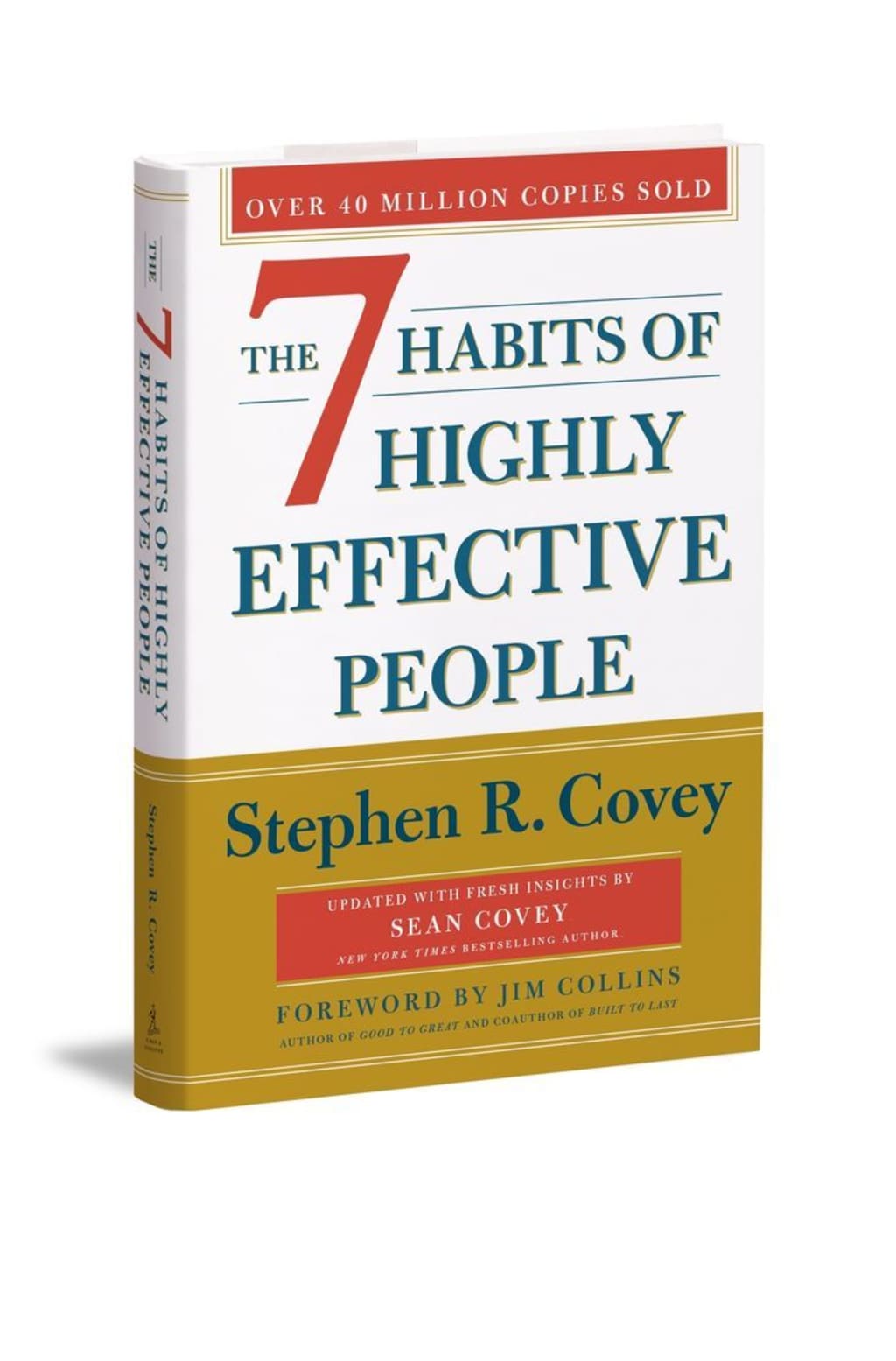
"The 7 Habits of Highly Effective People" by Stephen Covey is a timeless and transformative self-help book that has left an indelible mark on countless lives since its publication in 1989. Drawing from a deep well of wisdom and insights, Covey presents a comprehensive framework for personal and interpersonal effectiveness that continues to resonate with readers across generations.
Spanning seven powerful habits, Covey's principles form a roadmap for achieving success and fulfillment in both personal and professional spheres. The book is divided into two parts: "Private Victory" focusing on self-mastery and "Public Victory" centered on building successful relationships with others.
The first three habits in "Private Victory" are about developing an individual's character and self-awareness.
Habit 1, "Be Proactive," urges readers to take responsibility for their lives, to respond to circumstances proactively rather than being victims of circumstance. Covey emphasizes the power of choice, emphasizing that we have the freedom to choose our response to any given situation, regardless of external circumstances.
Habit 2, "Begin with the End in Mind," is centered on setting clear goals and envisioning the desired outcome before embarking on any endeavor. Covey encourages readers to craft a personal mission statement, aligning their actions with their values and long-term vision.
Habit 3, "Put First Things First," centers on time management and prioritization. Covey introduces the Time Management Matrix, categorizing tasks based on their urgency and importance, guiding readers to focus on activities that align with their long-term goals.
The second part, "Public Victory," delves into the habits of effective interpersonal relationships.
Habit 4, "Think Win-Win," stresses the importance of cooperation and collaboration. Covey argues that true success is not achieved at the expense of others, but through mutual benefit and interdependence.
Habit 5, "Seek First to Understand, Then to Be Understood," emphasizes empathetic listening and effective communication. Covey highlights the significance of understanding others' perspectives before sharing our own, fostering trust and strengthening relationships.
Habit 6, "Synergize," emphasizes the power of collective creativity and teamwork. Covey explores how diverse perspectives can lead to innovative solutions, and he encourages readers to celebrate differences and leverage them to achieve common goals.
Habit 7, "Sharpen the Saw," centers on renewal and self-care. Covey stresses the importance of nurturing physical, emotional, mental, and spiritual well-being to maintain a sustainable and effective lifestyle.
Throughout the book, Covey seamlessly weaves anecdotes, examples, and practical exercises that illustrate the application of each habit. His writing style is engaging and accessible, making complex concepts relatable and actionable for readers.
One of the book's key strengths is its holistic approach to personal development. Covey's model emphasizes the significance of character and principles as foundational elements for lasting success. Unlike many motivational books that focus solely on short-term tactics or quick fixes, "The 7 Habits" encourages readers to cultivate habits that will serve them throughout their lives.
The ideas presented in "The 7 Habits of Highly Effective People" are not mere theoretical concepts; they are backed by real-life experiences and research. Covey's principles draw upon a rich tapestry of philosophical, psychological, and leadership theories, giving them depth and credibility.
Moreover, the book is not limited to any particular demographic. Its principles are applicable to individuals from all walks of life, whether they are seeking personal growth, leadership development, or improved relationships. Covey's universality and inclusiveness have contributed to the book's enduring popularity and widespread acclaim.
Critics argue that some concepts in the book may be idealistic and difficult to implement in certain real-world situations. While this is a fair point, Covey himself acknowledges that applying the habits requires ongoing effort and practice. It's not about achieving perfection overnight, but rather a journey of continuous growth and learning.
In conclusion, "The 7 Habits of Highly Effective People" is a masterpiece that has stood the test of time and continues to inspire millions worldwide. Stephen Covey's principles have become a beacon of hope for those seeking personal and professional transformation. By cultivating these habits, readers are empowered to lead more purposeful, successful, and fulfilling lives. Whether you are a seasoned self-help enthusiast or a newcomer to the genre, this book is an essential addition to your reading list, inviting you on a journey of self-discovery and lasting positive change.
About the Creator
LianaAbry
Welcome to my world of words, where imagination knows no bounds and stories come to life with every stroke of the pen. My purpose is to ignite a passion for reading, learning, and exploring new perspectives.






Comments (1)
Please write about your thoughts and emotions during your reading experience.